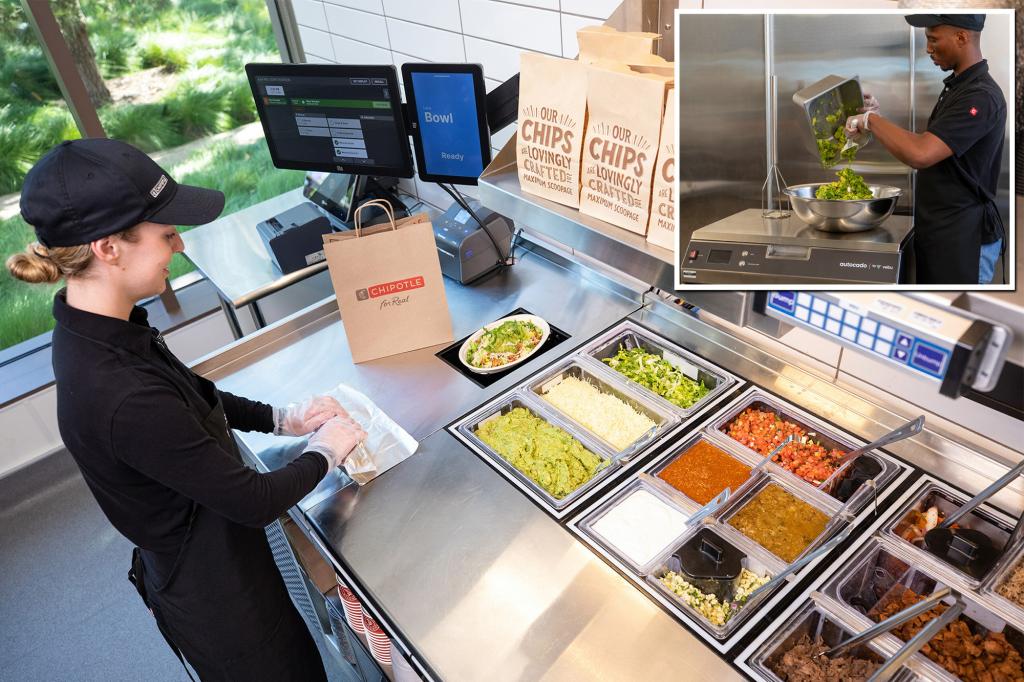Chipotle has recently deployed an automated bowl-and-salad maker and an avocado-processing robot in some of its locations in California. The chain is testing this technology to find efficiencies and determine whether it will make a broader rollout in the future. These moves come as all fast-food chains in California are required to pay $20 an hour to workers, with potential increases on the horizon, prompting many chains to invest in automation to reduce the need for human workers.
Many other restaurant chains have also invested in technology that reduces the need for cashiers, such as self-service kiosks. Some California-based chains, like Sweetgreen and Jack-in-the-Box, have been working with private tech startups that utilize robots to make food items like burgers, fries, and salads. However, fast-food workers often handle multiple tasks beyond food preparation, such as customer service and restocking, which current robots are not equipped to manage.
Despite its revenue of nearly $9.9 billion last year, Chipotle has not attributed its automation efforts to California’s wage hike. The chain stated that employees will still be responsible for tasks like making burritos and tacos, adding side items, and ensuring the quality of the machines. The automated bowl-and-salad maker, known as the “augmented makeline,” dispenses ingredients like rice, corn, and lettuce into a bowl under the counter, and has already shown promise in handling 65% of all digital orders at Chipotle.
Analysts have praised Chipotle’s automation efforts, with one calling it a potential game-changer that could give the chain a significant advantage over competitors. Chipotle invested in the technologies through a venture fund and has a stake in Hyphen, the startup behind the automated bowl-and-salad maker. Sweetgreen has also introduced a similar automatic bowl-making machine, showcasing the interest in automation within the fast-food industry. Chipotle’s “autocado” technology, which processes avocados for guacamole making, is another example of the chain’s investment in automation technology.
Chipotle’s automation efforts extend beyond just food preparation, as the chain had previously tested an automated system to make seasoned tortilla chips. However, the company found that the costs associated with setup and clean-up offset much of the labor savings from this technology. With California employing more fast-food workers than any other state, the recent minimum wage hike has led to price increases, with Chipotle raising its prices by 7% in the state earlier this year. The California Fast Food Workers Union is also seeking additional wage increases to account for inflation in the coming years, prompting discussions within the industry about the future of fast-food labor and automation.
Overall, Chipotle’s deployment of automation technology in its California locations reflects a broader trend within the fast-food industry towards reducing reliance on human labor. While automation offers benefits in terms of efficiency and cost savings, there are also challenges, such as the inability of current technology to handle all aspects of food preparation. It remains to be seen how automation will continue to impact the fast-food industry, particularly in California where labor costs are high, and workers’ wages are a topic of ongoing debate and negotiation.


